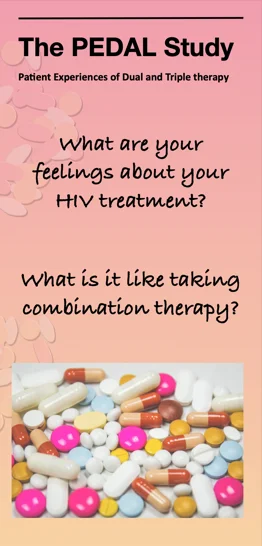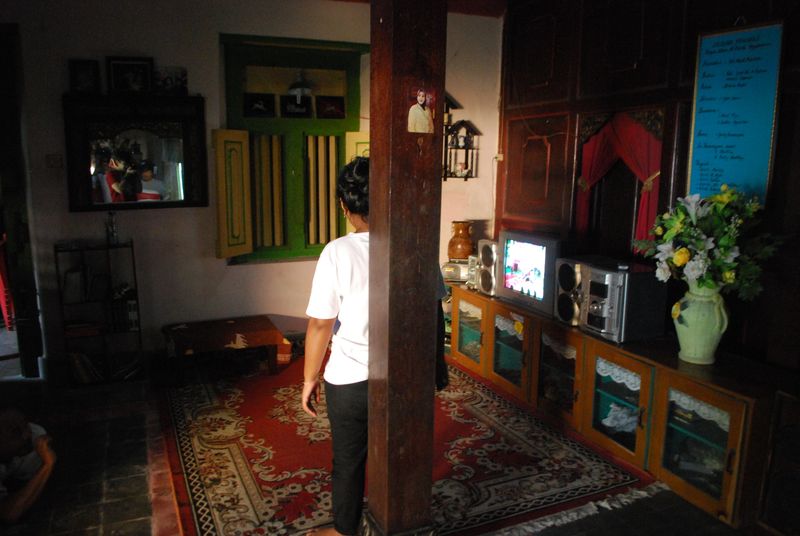Contact
Biography
Diego is a Leverhulme Research Fellow. His new book "Gender, Sexuality and Islam in Contemporary Indonesia: Queer Muslims and their Allies" was published in August 2023 and can be purchased using this link.
Diego holds a PhD in Gender and Sexuality Studies (University College London), a MSc in Asian Studies (Lund University/ National University of Singapore), and a BA in Journalism (University Complutense of Madrid, University of Tampere and Korea University).
His PhD examined the everyday religion of Indonesian LGBTIQ+ Muslims to interrogate the role of religion as a source of agentic power. He developed a theoretical framework to conceptualise queer religious agency moving beyond traditional conceptualisations of agency as resistance to religious norms, paying attention to the myriad ways through which queer Indonesian Muslims embody religious rituals through submission. Drawing upon 12 months of ethnographic fieldwork in Java, he also explored the development of progressive Islam in the country and the role of whom he called allies of queer Muslims.
Some of the grants Diego has received include the Leverhulme Trust Early Career Fellowship, the ESRC Postdoctoral Fellowship, the UBEL DTP ESRC PhD grant, the Erasmus Scholarship, the Complutense Exchange Scholarship, the Lund University Exchange Scholarship, the NIAS SUPRA scholarship (University of Copenhagen), and the Annette Lawson Charitable Trust scholarship.
Prior to joining the University of Nottingham, Diego worked as a Lecturer in Global Health at the Brighton and Sussex Medical School (University of Sussex/ University of Brighton), where he was previously a researcher exploring the experiences and perceptions regarding dual- and triple-drug combination treatments among people living with HIV.
Between 2020 and 2021, Diego worked as a Senior Researcher for a social justice consultancy company working for clients including the Equality and Human Rights Commission, the Foreign, Commonwealth and Development Office (FCDO), Kaleidoscope International Trust, Womankind Worldwide, World Habitat, and many other organisations and governments. He is also an expert in participatory research, process and impact evaluation, design of theories of change, and monitoring, evaluation, and learning.
Expertise Summary
Diego's areas of expertise include the sociology of religion; LGBTIQ+ subjectivities and subject positions; refugee and asylum studies; Southeast Asia; intersectional approaches to gender, sexuality and Islam; LGBTIQ+ health with a focus on Muslim sexual minorities living with HIV; everyday religion; LGBTIQ+ engagement; intersectional stigma and discrimination; impact and outcome evaluation; Theories of Change; participatory research methods; and peer research.
Diego's first book was published in August 2023 under the title 'Gender, Sexuality and Religion in Contemporary Indonesia: Queer Muslims and their Allies' (Routledge).
Research Summary
Diego's current research focuses on exploring a range of issues related to the experiences of LGBTQ (lesbian, gay, bisexual, transgender, and queer) religious refugees and asylum seekers living in… read more
Selected Publications
Current Research
Diego's current research focuses on exploring a range of issues related to the experiences of LGBTQ (lesbian, gay, bisexual, transgender, and queer) religious refugees and asylum seekers living in the United Kingdom and Japan.
Non-normative genders and sexualities and religion are argued to be antithetical in much scholarship on LGBT subjectivity construction. Challenging secularist assumptions, Diego's original and important study aims to explore the everyday religion of UK-based LGBT religious refugees and asylum seekers against their common portrayal as 'victims' in need of saving. It evaluates how these individuals contend with normative secularist discourses of LGBTIQ+ rights by analysing the potential of religious values in promoting queer liberation vis-à-vis a language of secularist freedom. Additionally, it investigates how liberal notions of queer 'authenticity' impact the Home Office's decision-making processes when considering asylum applications.
In the British asylum machine, religion and non-normative genders and sexualities are perceived as incompatible forces based on assumptions around religion as sexually restrictive. In fact, disclosing religious beliefs has led to the rejection of asylum claims among LGBT asylum seekers in the UK. While this occurs, religion, faith, and spirituality are often important for many of these individuals. By implementing a participatory approach, this study explores the case of LGBT religious refugees and asylum seekers living in the UK through the following objectives:
Objective 1: To determine the role that religion and spirituality play for LGBT refugees and asylum seekers, and to identify how this leads to the emergence of queer religious spaces.
O2: To understand how LGBT refugees and asylum seekers contend with queer liberationist secularist discourses by uncovering the impact that secular values have on the negotiation of their gender, sexuality, and religion.
O3: To examine the impact that the religion and spirituality of LGBT refugees and asylum seekers have on the management of asylum claims.
LGBTIQ+ asylum in Japan
As the research evolved, Diego extended his focus to the LGBTIQ+ context in Japan, where he spent three months conducting fieldwork with queer individuals, asylum seekers, and refugees in 2025. This extension allowed for a comparative analysis of how queer and religious identities are negotiated in different sociopolitical settings. In Japan, where asylum is rarely granted and LGBTIQ+ rights are still precarious, Diego's research specifically explored the lived experiences of LGBTIQ+ people seeking asylum, alongside broader issues of visibility, belonging, and discrimination.
This work emerged during a period marked by the political rise of Sanseitō, a far-right party that promotes ultranationalist values and has publicly opposed discussions of LGBTIQ+ rights and gender diversity in schools. The party's discourse has contributed to growing hostility towards marginalised communities, including migrants and queer individuals. Diego's research documents how this political climate intersects with Japan's conservative asylum system and shapes the social and institutional responses to queer asylum seekers.
Grounded in participatory methods, the research involved working closely with LGBTIQ+ individuals to co-design activities that centred their voices and agency. In both the UK and Japan, Diego facilitated creative workshops, exhibitions, and public events, using participatory approaches to co-produce knowledge and amplify the lived experiences of queer people seeking asylum. These activities aimed to challenge dominant narratives and encourage collective reflection, while creating alternative spaces of queer affirmation.
Past Research
HIV Research

Prior to joining the University of Nottingham, Diego worked on a project evaluating patients' perceptions and experiences on the safety, effectiveness, tolerability, and unmet needs of the dolutegravir/lamivudine dual-drug regimen focusing on people living with HIV who receive care at the HIV Department of the University Hospitals Sussex. The study aimed to develop a comparative analysis between patients on dolutegravir/lamivudine and patients on other dual-drug and three-drug combinations. The study has been used to produce recommendations to improve doctor-patient communication, knowledge and understanding of treatment plans, and additional care to be considered in patient-centred, holistic care plans.
Research in the human rights sector
Before joining BSMS, Diego worked as a research consultant for organisations such as, among others, the Equality and Human Rights Commission; Foreign, Commonwealth and Development Office; Prostate Cancer UK; World Habitat; the Kaleidoscope Trust, and Womankind Worldwide in Europe, Asia and Africa, conducting research and evaluation work. Additionally, he worked as a trainer providing monitoring, evaluation and theory of change workshops. His doctoral research employed a postcolonial queer theoretical approach to explore the everyday religion of LGBTIQ+ Muslims living in Indonesia.
PhD Research: First in-depth study of LGBT+ Indonesian Muslims

For his PhD thesis, Diego conducted the first in-depth study of queer Muslims and their allies in contemporary Indonesia, contributing to academic debates within, and among others, Indonesian, gender and sexuality, and religious studies. It did so by providing a snapshot of how queer Muslims navigate, negotiate and come to their gender, religious and sexual subjectivities in relation to the social institutions around them. The approach guiding this study, drawing upon postcolonial feminist debates about the agentic power of religious subjects, broke away from narrow conceptualisations of agency as resistance, which are common within liberal feminist and queer scholarship. Challenging existing representations that have stressed a conflictual relationship between being queer and Muslim, Diego's thesis contributed to new understandings of these intersecting subjectivities by identifying the role that religious practices such as fasting and prayers have for queer Muslims in Indonesia. Additionally, Diego explored the strategies developed by allies of queer Muslims to promote the inclusion of sexual minorities within Islam.
His first book, "Gender, Sexuality, and Islam in Contemporary Indonesia: Queer Muslims and Their Allies" was published by Routledge in 2023. The paperback edition was published in 2024 and you can buy it here.